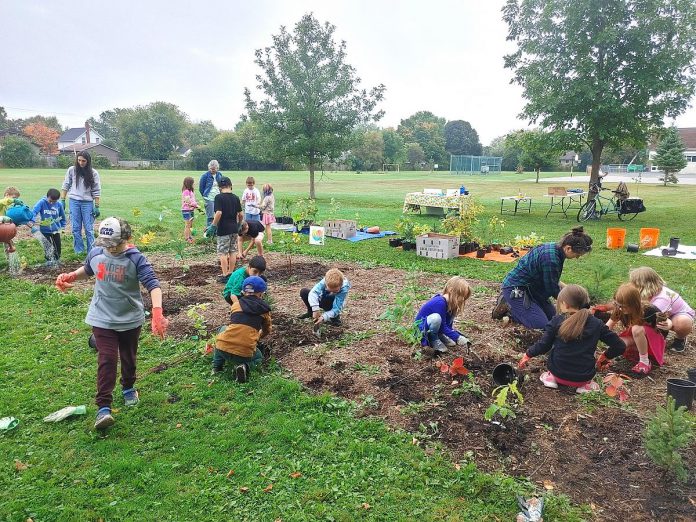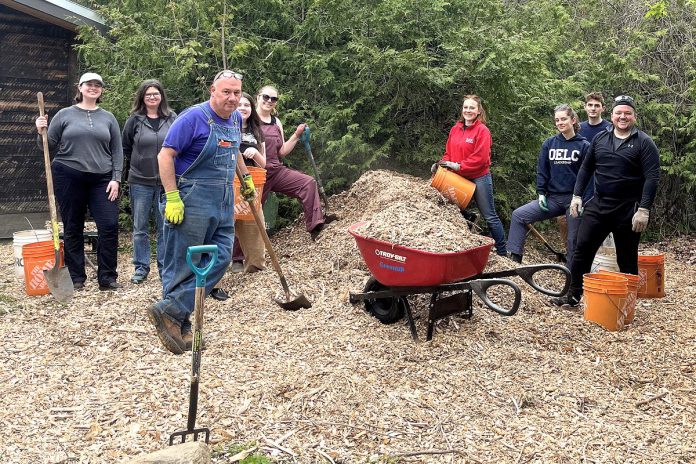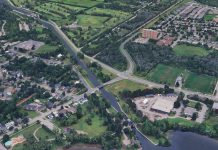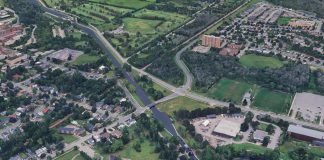
This year, GreenUP faces a critical challenge — one that could define our ability to continue serving the Peterborough community for years to come.
For over 30 years, GreenUP has empowered residents to embrace sustainability and take meaningful climate action. As a non-profit charity, we rely on stable funding to support a variety of programs that promote sustainability, environmental education, and green living.
With declining funding available for our work, we are already managing significant revenue reductions which puts some of our valuable initiatives in jeopardy. As funding challenges grow, we are at risk of having to reduce our vital climate programs at a time when they are needed most.
“Our environmental education programs are at the heart of what makes our community unique and resilient,” says Tegan Moss, executive director of GreenUP. “Losing them would have a significant impact on Peterborough and the local environment.”
In 2024, despite funding challenges, GreenUP has made significant strides in climate action and community sustainability. Our programs continue to have a positive impact.
Through our home energy programs, our clients are collectively saving over 14,800 gigajoules of energy annually — equivalent to taking 104 homes off the grid. We’ve also helped divert more than 2,000 plastic bottles from landfills through our “refillery” at the GreenUP Store and Resource Centre.

Our programs have reached the next generation too: 1,300 local students participated in the Peterborough Children’s Water Festival and 386 children took part in our cycling education events, learning how to stay safe while reducing their carbon footprint.
Over 1,500 trees have been planted across Peterborough, and four Little Forests have been established at local schools, creating vibrant spaces for learning and environmental stewardship.
This year, our propagation of native plants has also flourished, with more than 2,500 native plants started through our new initiative at Ecology Park. Our team is deeply invested in enhancing Ecology Park as a space for education workshops and native plant propagation, contributing to local biodiversity and community education.
Unfortunately, recent shifts in funding have made it necessary for us to evaluate how we can continue delivering the most impactful programs with limited resources.
For example, our active transportation programs, which promote safer, more sustainable travel options for youth, though well supported locally, are now at risk due to changing provincial funding priorities.
Likewise, our home energy services have been negatively impacted by rapid changes to federal incentives, and our water conservation programs — which were once funded by Peterborough Utilities Group — are now facing critical funding challenges.

The urgency of climate work is all around us. Ongoing shifts in weather patterns and intensity provide a daily reminder of our changing climate. With a legacy of sustainability education through characters like Cool Captain Climate and programs like Recycle Rangers, GreenUP has long been at the forefront of helping our community adapt.
Our impact has been far and wide. Many thousands of children have participated in our educational experiences at Ecology Park, for example. At GreenUP we need to continue increasing our efforts, not scale back — and we need your help to do that.
Programs like the curriculum-linked school field trips and the native plant propagation efforts at Ecology Park are all powered by community support. Contributions to GreenUP will help maintain what we’ve built together, and allow us to prepare for the climate challenges ahead.
“Resiliency is a collective effort,” says Moss. “With the support of our community, we can ensure that the important local climate work our friends and neighbours care about continues to thrive. We intend to care for and learn in community spaces like Ecology Park for at least 30 more years.”
Together, we can continue to inspire positive change and empower our community to create a greener future. We invite you to join us in making a difference this giving season. Your tax-deductible donation to GreenUP will keep us working effectively to mitigate and adapt to the climate challenges we face together.
To learn more or to donate, visit www.greenup.on.ca/donate-now or schedule a meeting with GreenUP executive director Tegan Moss at tegan.moss@greenup.on.ca.


























